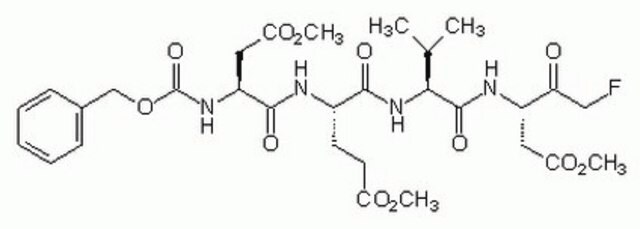05-348
Anti-Tau Antibody, clone 5E2
clone 5E2, Upstate®, from mouse
Sign Into View Organizational & Contract Pricing
All Photos(1)
About This Item
UNSPSC Code:
12352203
eCl@ss:
32160702
NACRES:
NA.41
Recommended Products
biological source
mouse
Quality Level
antibody form
purified antibody
clone
5E2, monoclonal
species reactivity
bovine, rat, rabbit, mouse, human
manufacturer/tradename
Upstate®
technique(s)
immunohistochemistry: suitable
western blot: suitable
isotype
IgG1
NCBI accession no.
UniProt accession no.
shipped in
dry ice
target post-translational modification
unmodified
Specificity
several parts of Tau protein between 50kDa and 70kDa
Immunogen
Fetal heat stable MAPS
Application
Detect Tau using this Anti-Tau Antibody, clone 5E2 validated for use in WB, IH.
Research Category
Neuroscience
Neuroscience
Research Sub Category
Apoptosis - Additional
Neurodegenerative Diseases
Apoptosis - Additional
Neurodegenerative Diseases
Quality
routinely evaluated in immunoblot on rat brain preparations
Target description
50-70kDa
Linkage
Replaces: MAB10417
Physical form
0.1M Tris-glycine, pH 7.4, containing and 0.05% sodium azide
Format: Purified
Protein G Chromatography
Storage and Stability
2 years at -20°C
Legal Information
UPSTATE is a registered trademark of Merck KGaA, Darmstadt, Germany
Disclaimer
Unless otherwise stated in our catalog or other company documentation accompanying the product(s), our products are intended for research use only and are not to be used for any other purpose, which includes but is not limited to, unauthorized commercial uses, in vitro diagnostic uses, ex vivo or in vivo therapeutic uses or any type of consumption or application to humans or animals.
recommended
Product No.
Description
Pricing
Storage Class Code
12 - Non Combustible Liquids
WGK
WGK 1
Flash Point(F)
Not applicable
Flash Point(C)
Not applicable
Certificates of Analysis (COA)
Search for Certificates of Analysis (COA) by entering the products Lot/Batch Number. Lot and Batch Numbers can be found on a product’s label following the words ‘Lot’ or ‘Batch’.
Already Own This Product?
Find documentation for the products that you have recently purchased in the Document Library.
K S Kosik et al.
Neuron, 1(9), 817-825 (1988-11-01)
Tau protein has been shown to be an integral component of Alzheimer paired helical filaments (PHF). However, the extent to which tau is incorporated into PHF has not been clear because the antibodies used to label PHF generally do not
Gennady Ermak et al.
The FEBS journal, 273(10), 2100-2109 (2006-05-03)
The RCAN1 protein (previously called calcipressin 1 or MCIP1) binds to calcineurin, a serine/threonine phosphatase (PP2B), and inhibits its activity. Here we demonstrate that regulated overexpression of an RCAN1 transgene (this gene was previously called DSCR1 or Adapt78) also stimulates
MAP2 and tau segregate into dendritic and axonal domains after the elaboration of morphologically distinct neurites: an immunocytochemical study of cultured rat cerebrum.
Kosik, K S and Finch, E A
The Journal of Neuroscience, 7, 3142-3153 (1987)
N W Kowall et al.
Annals of neurology, 22(5), 639-643 (1987-11-01)
The microtubule-associated protein tau, a major antigenic component of paired helical filaments, has been demonstrated in neurofibrillary tangles and in neurites of senile plaques. With optimal fixation and histochemical methods, we show the normal axonal location of tau protein in
A C McKee et al.
Annals of neurology, 26(5), 652-659 (1989-11-01)
Cytoskeletal disruption is a key pathological feature of Alzheimer's disease (AD). We used refined immunocytochemical techniques to define the range of abnormalities affecting the microtubule system in AD hippocampus. Minimal tau and tubulin immunoreactivity was granular and accumulated in otherwise
Our team of scientists has experience in all areas of research including Life Science, Material Science, Chemical Synthesis, Chromatography, Analytical and many others.
Contact Technical Service







